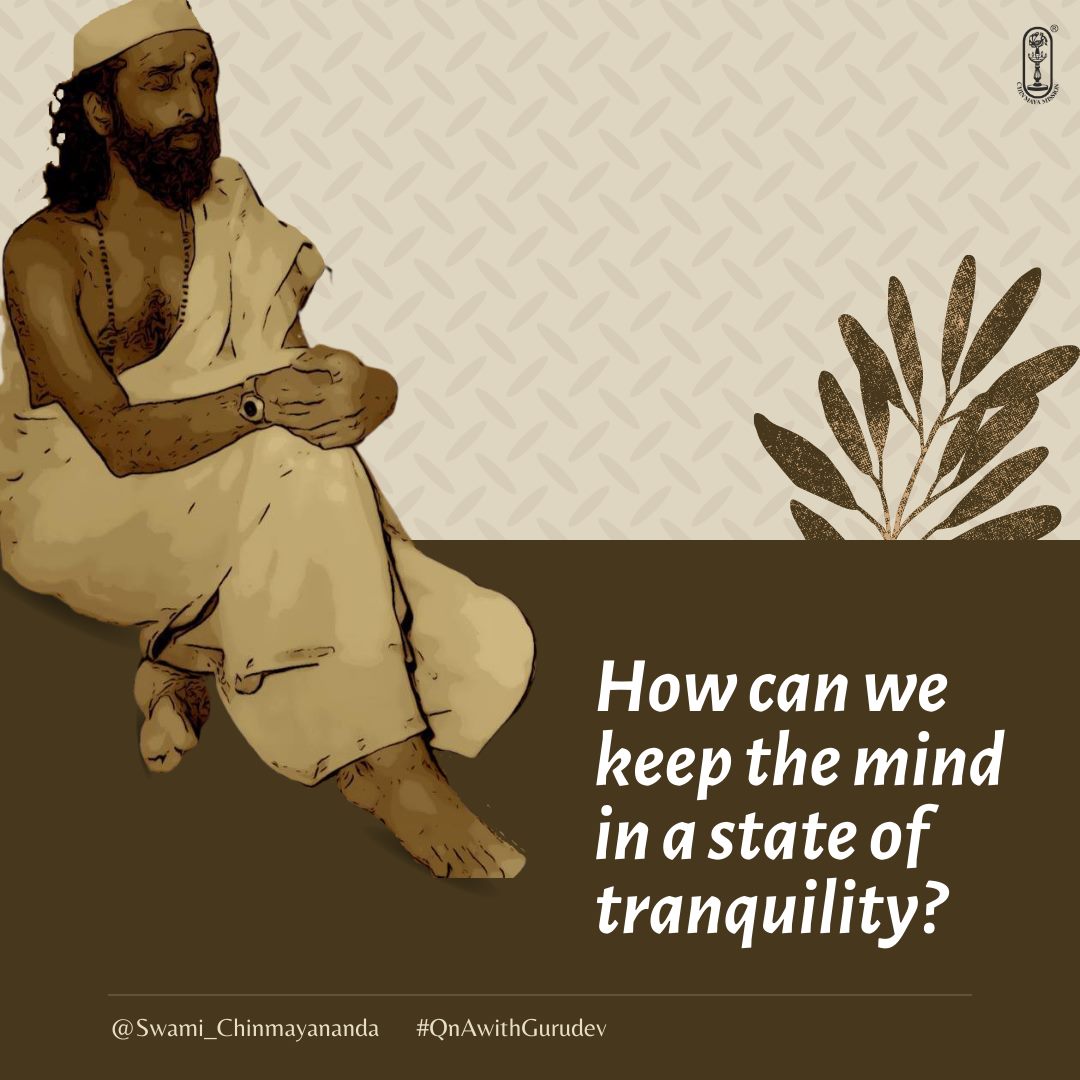The Relevance of the Bhagavadgita to Humanity : 12.5. Swami Krishnananda.
-----------------------------------------------------------------
Thursday, July 22, 2021. 10:34. AM.
Chapter-12. Control of the Senses : 5.
The First Six Chapters of the Bhagavadgita
(Spoken on Bhagavadgita Jayanti)
---------------------------------------------------------------
---------------------------------------------------------------------------------------------------
Having desire, anger and greed need not necessarily mean that these forces are operating in us perpetually, day in and day out. To be desireful, a person need not go on shouting, “I want, I want, I want!” And we need not go on attacking somebody in order to be angry. It is not necessary to go on shouting, “I have this desire! I have this desire!” There is no need to say all these things. But without announcing our propensities, even without knowing sometimes that these are present at all in us, they shall be present. Our propensities, traits of this character, sometimes lie hidden and latent within us, without external manifestation, due to the pressure of circumstances. If longings do not manifest themselves openly in daylight, it is because the conditions of outer life do not permit their expression. If sometimes we are unable to give vent to our anger, it does not necessarily mean that we are not angry. It only means conditions outside do not permit the ventilation of that anger. So is the case with any trait or impulse.
Even the potential, latent, hidden impulse of this kind will act as a screen preventing the insight into our real association with the universal operation of things. Here is the answer why we cannot put into practice this open truth that we are necessary participants in the cosmic operation. Individuality is no more to be seen in this world. Nothing in the world is individual. Everything is a part of something else, but we cannot understand this. Even the reason is not permitted to think in this manner because impulses which are irrational overcome even rationality many a time. Reason fails when irrational instincts gain an upper hand.
Irrational behaviour is a temporary state of loss of reason, and at that time we cannot know how a person will behave. When irrationality preponderates and puts down all rational possibilities, a person will start behaving like a wild cyclone which does not know where to move or what to do. When thick clouds are hanging in the sky, wind is blowing from all sides and there is a downpour of rain, even midday can look like midnight, as if the sun is eclipsed totally and does not exist anymore. We will not be able even to cognise the presence of rationality in the world. We will become temporarily mad if instincts gain an upper hand. And instincts have many levels of manifestation.
These are explained in greater detail in the sutras of Patanjali. We have a potential condition; we have a tentatively thinned-out, weakened condition; we have a sleeping condition; and we have an obviously manifest condition. Four conditions of instincts are mentioned in Patanjali. So when instincts do not obviously and actively operate outside like a soldier fighting in the field, it need not mean they are not there. They can be sleeping. A sleeping snake is nevertheless a serpent. A potential thief is a thief, though he is not actually thieving at this moment. There can be an emaciated snake. An emaciated snake which has not eaten for months has the capacity to be what it is when it is fed well. There is a submerged condition, things lying in ambush waiting to find an opportunity to come up.
To be continued ....
==========================================================






Comments
Post a Comment